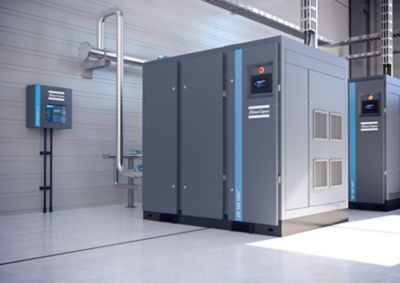How to avoid compressor noise - and which compressors are particularly quiet.
Estimated reading time: 4 minutes
Air compressors, especially reciprocating compressors, can be very noisy. This is not only uncomfortable, especially during continuous use, but can even damage your health. In addition to stress from noise pollution, permanent hearing damage or even hearing loss can be the result.
In addition, working in a noisy environment can lead to background noises, including warning signals or even the fire alarm, being overheard, which is an even greater risk.
For these reasons, employers should take all necessary measures to protect their employees.
Why is the compressor actually loud? How is the noise created?
Quite simply, the answer is: through friction that arises during the compression process and causes the noise.
This is particularly pronounced in the case of piston compressors , as their design consists of more moving parts than, for example, screw compressors .
Can I influence the volume of the compressor? How can I reduce the noise level of the compressor?
In the case of particularly loud compressors, you can influence the volume by either creating a greater distance to your employees or by encapsulating the machine, i.e. housing it or placing it in a compressor room.
Setting up your compressor in a separate room is therefore ideal. If this is not spatially feasible, you should opt for a particularly quiet compressor from the outset. Sound-insulated compressors can be placed directly on the production line to save space, without disturbing the operator with their volume.
Tip: To make it easier for you to meet the health and safety requirements relating to noise, we have developed particularly quiet compressors, including the G & GA and SF series.
What kind of compressors are the quietest?
Due to their technical concept, piston compressors tend to be the loudest compressors. In comparison, scroll compressors are very quiet. For example, the SF air compressors from Atlas Copco have a low-noise scroll element, an optimized, super-quiet fan and a soundproof hood that reduces the noise level to just 53 decibels! Screw compressors also work quietly because the screws compress without contact. For example, Atlas Copco's screw compressors only develop a sound pressure of up to 62 dB (A). They are ideal for applications that require a continuous air supply in continuous operation.

